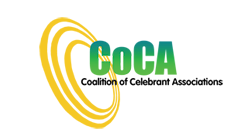In the 1997 to 2002 Consultations with marriage celebrants and the public, the basic rationale for change was to move celebrancy towards a self-regulating profession.
In particular, it was stressed to the Associations that religious celebrants were required to do training to become a minister or priest and also to do contiuing professional devlelopment.
The 5 hours or a day chosen as a minimum from the government perspective because the risk of invalidity of marriages is low.
One basic requirement of professions is that the practitioners keep up to date with trends in their profession, new techniques and services and continue to improve their knowledge an skills beyond basic training. In a profession this is called continuing professional development CPI. It appears because our basic training is in the VET system the MLCS has chosen to call this OPD, but the principles are the same.
As alluded to in the discussion paper, the peak bodies or associations are the ones to organise professional develop activities and to maintain one's 'licence' to practice the practitioners must meet these requirements or risk suspension.
That's why the reference to lawyers and accountants.
In 2014 CoCA representatives meet with the AGD and OPD Providers to plan for the future.
A paper on the role of professional development was prepared for that workshop:
The role of professional development
CoCA Recommendations as a result of the February 2014 AGD Workshop
The Coalition of Celebrant Associations - CoCA has made a number of recommendations over the past few years.
Basically CoCA considers that:
- as is the case in our professions, the celebrancy profession should determine what its OPD activities and parameters will be, especially as there is no mandated OPF for state registered marriage celebrant
- with the online portal being activated this July, there will be a mechanism for direct feedback from celebrants as to the value of the OPD activity they undertook.
- the approval mechanism needs to be simple and flexible with celebrants having a broad range of choice as to possible OPD activities
- the current level of involvement by the MLCS is not cost effective nor necessary, and leads to delays in OPD approvals
- the level of involvement by the MLCS should be minimal as the MLCS are not celebrants, adult educators nor trainers, and are thus operating outside their level of expertise as regards OPD.
- MLCS needs to direct its efforts to ensure that celebrant trainers who deliver legal topics are fully versed in Marriage Law
- Units of celebrancy course should be approved as OPD as should seminars and conferences held by celebrant associations
The AGD prepared a paper as their response to this workshop
Download AttachmentA-OPD_Paper-June2013.pdf
CoCA made a submission in response to this paper.
This is the part of their response related to now
OPD beyond 2014
Other ideas on approaches to OPD have been raised but have not at this stage been implemented or considered in great detail by the department. These include:
- Association office bearers receive an exemption from elective OPD requirements *
- Conference paper developers / authors / presenters receive an exemption from elective OPD requirements
- OPD trainers / activity developers receive an exemption from elective OPD requirements
- Units of the Certificate IV in Celebrancy count as OPD
- Removing the distinction between compulsory and elective OPD activities, and
- Review of requirements for trainers delivering OPD.
The department proposes to continue to monitor and review OPD with a view to ensure that OPD continues to meet OPD principles and objectives, be relevant for marriage celebrants and provide choice recognising the diversity of interests of marriage celebrants while remaining a simple system for celebrants to use.
These ideas (and any others that may be put forward) will be considered by the department during 2014.
* Note: These suggestions are examples of comparable PD activities to other profession.


